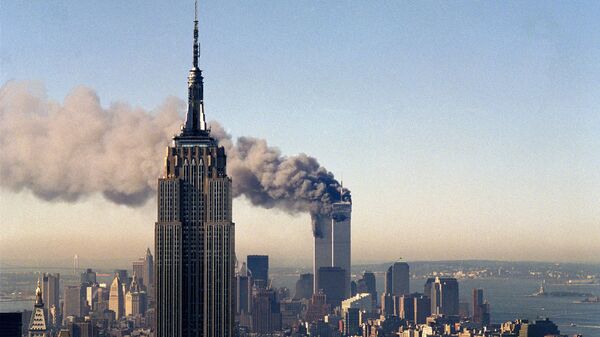Those representing the families of victims said they will appeal the decision of US District Court Judge George Daniels, who ruled that there wasn't enough evidence to prove Saudi Arabia was involved in funding the group, or the 2001 attacks.
"The allegations in the complaint alone do not provide this court with a basis to assert jurisdiction over defendants," Daniels wrote in his ruling.
Saudi Arabia is officially dismissed from 9/11 lawsuites, how? 16 of the alleged perpetrators were Saudi nationals https://t.co/3xfALacnY4
— Fer G (@FGunay1) September 30, 2015
However, lawyers bringing forward the complaint promised to appeal the decision.
James Kreindler, an attorney for one of the plaintiffs' groups, said the judge "got it wrong", while another attorney, Jerry Goldman said he was confident that an appeal would "render the justice that… the families of the victims of the attacks on 9/11 so rightly deserve."
Central to complaints about the case and ruling were accusations that crucial pieces of information were held from claimants by the US government, which lawyers believe could have influenced the final decision.
"Osama was a Saudi, 14 of the 9/11 plane hijack team were Saudi; but did US ever invade Saudi Arabia?" #Homeland
— Be'havin! (@WrongDoc) September 30, 2015
"Evidence central to these claims continues to be treated as classified," lawyer Sean Carter said.
"The government's decision to continue to classify that material certainly factored into this outcome."
Questions Remain Over Alleged Saudi Involvement
The decision represents a major setback for the families of those killed in the 9/11, with representatives pushing for billions of dollars worth of damages, if they can prove that Saudi Arabia was involved in supporting al-Qaeda.
One could draw a relatively straight line from 9/11, the start of the War on Terror and Saudi Arabia, yet they remain our ally. #elxn42
— CitySlikr (@cityslikr) September 27, 2015
Saudi Arabia was initially dismissed from the case in 2005 as a result of US foreign sovereign immunity laws, which sets limits on whether a foreign nation can be sued in US courts.
However, the case was re-opened in 2013, when a federal appeals court ruled that there was a legal exception to pursue the claims, as the circumstances were extraordinary.
The US government's 9/11 Commission report of 2003 found that there was no evidence that Saudi Arabia had funded al-Qaeda, however critics have argued otherwise.
Yeah, good luck with that: 15 of 19 9/11 attackers were Saudis: Harper defends military deal with Saudi Arabia http://t.co/I3vorOj5yc
— Lorrie Goldstein (@sunlorrie) September 26, 2015
Fifteen of the 19 hijackers involved in 9/11 were Saudi citizens, with the Gulf kingdom accused of assisting those involved in the attacks and partly financing the operations of al-Qaeda.
Lawyers were also critical of judge Daniels's decision to dismiss evidence from former al-Qaeda operative Zacarias Moussaoui, also known as the '20 hijacker', who claimed that a Saudi prince financially supported him during his training at flight school, and also gave other attackers significant amounts of money.


